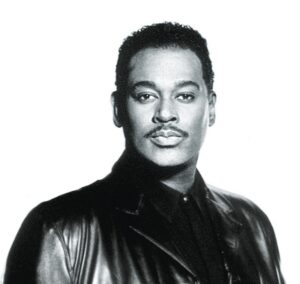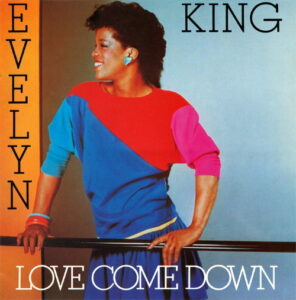R&B and jazz songstress Miki Howard had the whole package for success: the looks, the material, and especially the voice. And she carved a successful career as the singer of a number of fine jazzy soul tracks that kept her near the top of the R&B charts for several years in the late 80s and early 90s. While Howard’s music always had a current groove, she maintained a sense of the past, and her attractive voice always added an element of jazz to the mix.
Born into a Gospel family — both of her parents were nationally recognized singers — Howard had a difficult childhood, often in and out of foster care as her parents struggled with their responsibilities. She ultimately moved to Los Angeles with her mother, but left the household following attempted abuse by her stepfather. She found a new home with a friend’s family and began her own search for her place in the musical world.
Howard broke in as the replacement for Sylvia St. James in the group Side Effect, where she showed her pipes even though she was just a teen. Her romance with group leader Augie Johnson, with whom she had two children, ended a few years later and she was signed as a solo act on Atlantic Records in 1986. Her Atlantic debut was auspicious, as she shot into the top 10 with the beautiful soul midtempo “Come Share My Love.” The song was a soul smash but started an unfortunate trend of her songs receiving great visibility on R&B radio but almost no crossover exposure. She followed it over the next half decade with hits such as “Baby Be Mine,” “Crazy” and the #1 “Ain’t Nuthin In the World.” Perhaps best of all was the Gospel-like “Love Under New Management,” a terrific cut that highlighted her third and most successful album.
Frustrated with her lack of crossover success, Howard moved to Giant Records in 1992 and again hit the top with “Ain’t Nobody Like You,” which turned out to be her last major hit. She moved to her jazz roots a year later witha critically acclaimed tribute album to Billie Holiday, Miki Sings Billie. But a bad marriage and a messy break up with Giant led to that album receiving almost no support and Howard finding herself without a record contract for several years.
Howard’s personal problems continued and she succumbed to drug addiction after her relocation to Atlanta, which further hurt her career. But she conquered her addictions with the help of friend Gerald Levert, and signed with Peak Records for 2001’s Three Wishes, which didn’t sell well but brought her her first Grammy Award. She returned five years later on Shanachie Records with Pillow Talk, an album of soul and pop covers.
In 2008, Howard released the independent Private Collection to general critical praise. The disc included a handful of original songs along with well chosen covers. Her life was chronicled in 2010 on TV One’s Unsung, Since then, Howard has continued to record on occasion and to perform regularly around the world. Her voice is still a marvel, as she showed in 2022 on her release of a beautiful cover of Abby Lincoln’s “Throw It Away”
By Chris Rizik










